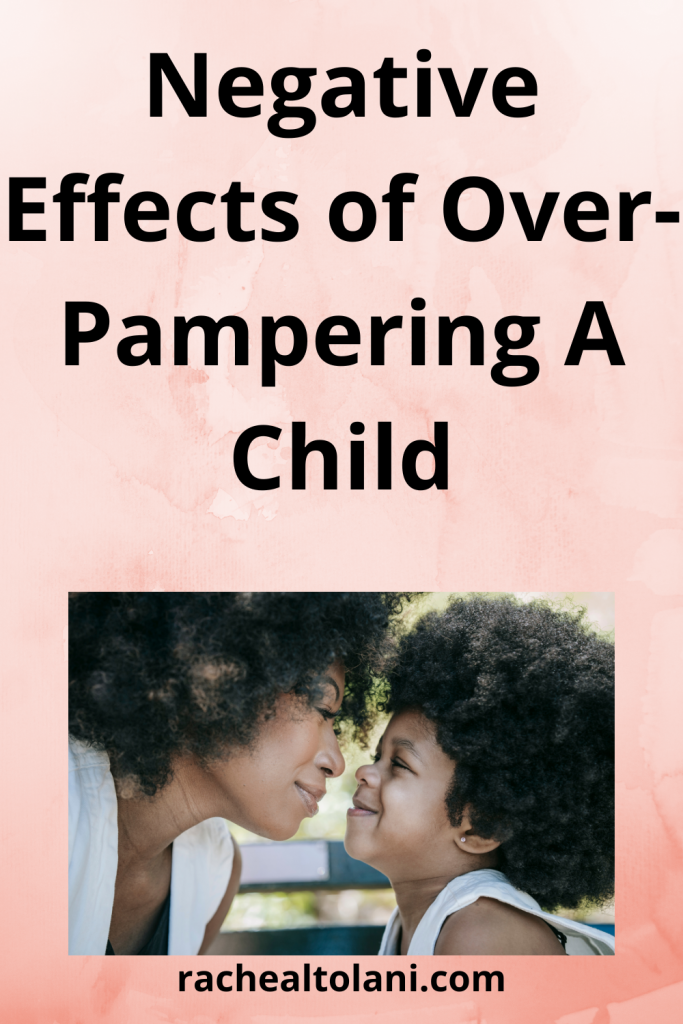Over-pampering a child, while often well-intentioned, can have negative consequences on their development and future well-being. Many children have missed it in life just because their parents have taken their caring to the extreme. It is good to show love to a child but not too much. Because too much of everything is bad. Therefore, 10 reasons why you must not over-pamper your child is highly recommended to every parent.
What Is Over Pamper?
Over-pamper” refers to excessively indulging or spoiling someone, often to the point where it may have negative consequences. When someone is over-pampered, they are provided with an abundance of attention, affection, and material possessions. They get special treatment, beyond what is necessary or appropriate.
It can occur in various contexts, such as parenting, relationships, or caregiving. It typically involves excessively meeting someone’s needs or desires without setting appropriate limits or boundaries. While pampering can be a way to show love and care, overdoing it can lead to dependency, entitlement, and other negative outcomes. As it may inhibit the development of important life skills and resilience.
Examples of over pamper
In parenting, for example, over-pampering a child may involve giving in to their every demand. Providing excessive praise or rewards, or shielding them from challenges or consequences. In relationships, over-pampering a partner may involve constantly doting on them, catering to their every whim, or neglecting one’s own needs in favor of theirs.
Here are some reasons why over-pampering your child may not be beneficial:
Dependency
Over-pampering can foster dependency in children, making them reliant on others to meet their needs and solve their problems. This can hinder their ability to develop independence, resilience, and problem-solving skills necessary for adulthood.

Entitlement
Over-pampered children may develop a sense of entitlement, expecting special treatment or privileges without having to earn them. This can lead to unrealistic expectations and difficulties in navigating the challenges of the real world.
Lack of Responsibility
When children are over-pampered, they may not learn the value of responsibility or the importance of contributing to the family or community. This can lead to a lack of accountability and a sense of entitlement.
Poor Social Skills
Over-pampering can impede the development of essential social skills, such as empathy, cooperation, and conflict resolution. Over-pampered children may struggle to relate to others, form meaningful relationships, or navigate social situations effectively.
Low Frustration Tolerance
These types of children may have difficulty coping with frustration or disappointment, as they are accustomed to having their needs immediately met. This can lead to tantrums, outbursts, or other maladaptive behaviors when things don’t go their way.

Underdeveloped Coping Skills
Over-pampered children may lack the resilience and coping skills necessary to handle life’s challenges and setbacks. They may struggle to persevere in the face of adversity or bounce back from failure.
Poor Self-Regulation
It can hinder the development of self-regulation skills, such as impulse control and emotional regulation. Children who are over-pampered may struggle to manage their emotions, impulses, or behaviors in appropriate ways.
Delayed Independence
Over-pampering can delay the development of independence and self-reliance in children. They may become overly dependent on their parents or caregivers for even basic tasks, such as getting dressed or making decisions.
Difficulty Adapting to Adulthood
Children like these may struggle to transition into adulthood and navigate the responsibilities and expectations of independent living. They may be unprepared for the challenges of adulthood and lack the necessary skills to thrive on their own.

Unrealistic Self-Image
Over-pampered children may have an inflated sense of self-importance or entitlement, leading to unrealistic expectations about themselves and their abilities. This can hinder their ability to develop a realistic self-image and achieve their full potential.
Overall, while it’s natural to want to provide love and support to your child, it’s important to strike a balance and avoid over-pampering. Encouraging independence, responsibility, and resilience in children lays the foundation for their future success and well-being.
However, over-pampering can have detrimental effects on individuals’ development and relationships. As it may foster dependency, entitlement, and a lack of accountability. It’s important to strike a balance between showing love and support and allowing individuals to develop independence, resilience, and self-reliance.
Also read:


I have been reading all the signs of him cheating and I truly believe he is but, I’ve asked him but he gets so defensive and the name-calling comes out and then he expects me cheating, so, therefore, he never gives me a yes or no answer is always an argument, I’ve even noticed him buying me gift then normal, following me on social media, he even put a camera inside and out he says it’s for safety but I believe so he knows if I’m home or not and freaks out if they get turned off, thank to kelvinethicalhacker@gmail.com, he will grant you access to his phone to see what is happening in my back without consent, he did that for me, am very grateful to find out. you can text kelvin whatsApp +1(341)465-4599..
i was lost with no hope for my wife was cheating and had always got away with it because i did not know how or always too scared to pin anything on her. with the help a friend who recommended me to kelvinethicalhacker@gmail.com, who help hack her phone, email, chat, sms and expose her for a cheater she is. I just want to say a big thank you to kelvin. am sure someone out there is looking for how to solve his relationship problems, you can also contact him for all sorts of hacking job..he is fast and reliable. Text on whats app through this number +1(341)465-4599.